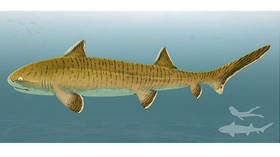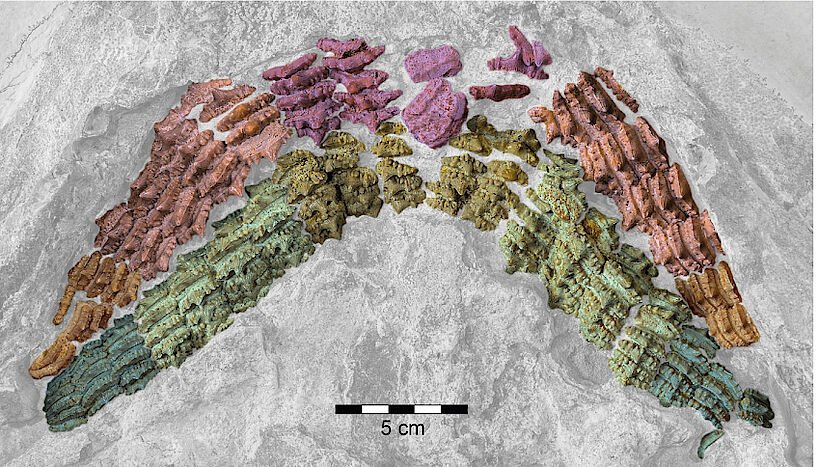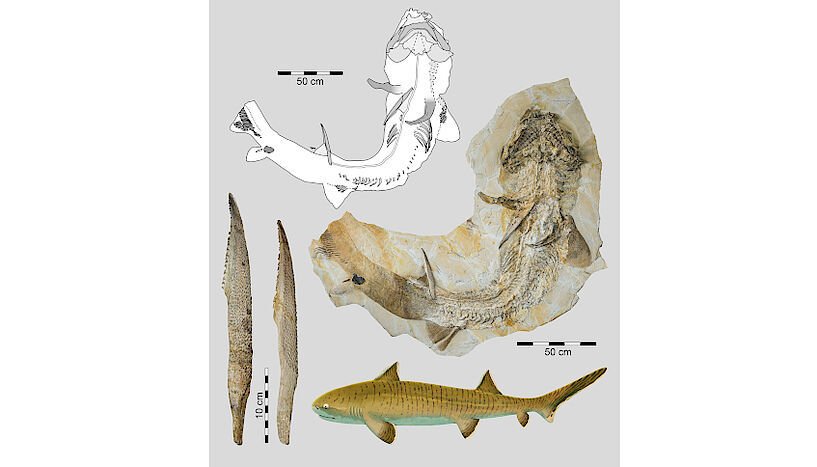‘Giant’ Jurassic shark fossil unearthed in Germany was ‘most impressive’ fish of its time

The spectacular discovery of an almost complete skeleton of a Jurassic-period shark has given researchers incredible new insight into life on Earth 150-million-years ago.
The exceptionally well-preserved fossil was found in the Solnhofen Limestone formation in Bavaria, Germany, which had a tropical lagoon landscape when the shark was in its pomp in Earth’s distant past.
The fossil is the remains of an Asteracanthus shark measuring over eight feet (2.5 meters) in length, which researchers say made it a “giant” among Jurassic sharks.
Asteracanthus is a type of Hybodontiform shark, which are the closest relatives of modern sharks, skates, and rays. The predators roamed the seas of ancient Earth for nearly 300 million years. They came equipped with 150 razor-sharp teeth, leading experts to conclude they were voracious eaters.

“This specialized type of dentition suggests that Asteracanthus was an active predator feeding on a wide range of prey animals. Asteracanthus was certainly not only one of the largest cartilaginous fishes of its time, but also one of the most impressive,” said Sebastian Stumpf, of the University of Vienna, who was the paleontologist who led the research.
The sharks survived two mass extinctions before becoming extinct together with dinosaurs at the end of the Cretaceous period, about 66 million years ago.
The find is so valuable because fossilized shark skeletons are rare due to the fact they are made of cartilage. Asteracanthus was scientifically described by Swiss-American naturalist Louis Agassiz more than 180 years ago, but this is the first time articulated fossil remains have been found.

Think your friends would be interested? Share this story!













